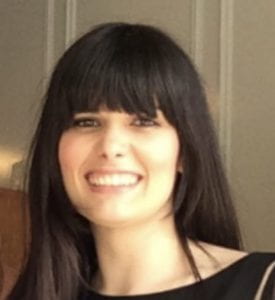Context
The ongoing Covid-19 pandemic continues to create challenges and opportunities in youth work. Over the past few months, a variety of factors have impacted young people significantly – including changes and restrictions at school, cancelled exams, and school closures. Combined with a general sense of fatigue around the ongoing restrictions, meaningful engagement can be difficult. For LGBTQ+ young people there may be other contributing factors, including hostile home environments.
There have been some significant social and political decisions affecting LGBTQ+ young people recently, most significantly the recent High Court ruling which affects access to puberty blockers for trans, non-binary and gender diverse young people. Media coverage surrounding this issue, amongst others, means that some LGBTQ+ people are facing social hostility in a variety of ways.
Ongoing City Fellows Work
During this time period, I have been invited and contributed to several discussions at Bristol City Council – some directly involving young people, and some with stakeholders.
In August, the City Office held a webinar for the public, exploring Bristol’s economic recovery from Covid-19. The webinar was a panel discussion with young people across the city, and I was able to recruit and support an LGBTQ+ young person to take part in the discussion. Issues including public transport, climate change, barriers to service access, and mental health were discussed. The Freedom member that took part was the youngest panellist. The webinar led to some discussions with the City Office around engagement and participation, and the webinar was well received by the public.
I have contributed to discussions with the BCC comms team around a marketing campaign aimed at young people around the Covid-19 restrictions. I was able to gather some information from LGBTQ+ young people about their thoughts about Bristol’s response to the pandemic, and the messaging that they had seen or heard in relation to young people, and raised this at the meeting in contribution to plans for the campaign. There were plans to approach local celebrities and community leaders to record messages targeting specific groups of young people.
I was invited, along with Ben Carpenter of Grassroots Communities, to support with the development of the Children and Young People’s Board as part of the One City Plan. After some initial promising meetings, plans have changed quite significantly and Ben and I are yet to understand fully what our input might be to the development of the board and, most significantly, to the engagement and participation of young people within this. We are optimistic that we will be able to support the development of the Board to be make significant strategic change in the remaining months of the Fellowship.
In November, I hosted an intergenerational conversation about HIV to mark World AIDS Day on December 1st. ‘HIV through a generation’ brought together young people from Freedom Youth with service users and volunteers from the Brigstowe Project, a local service that offers information, advice and support to those living with or affected by HIV. The conversation explored health inequalities, HIV awareness and education, and stigma and discrimination, and looked at both the parallels and the differences of experiences of living through a pandemic – both the current Covid-19 pandemic, and the HIV epidemic. The importance of accessible, accurate and inclusive HIV education was emphasised, and there are several ongoing conversations about how this can be included in the PSHE guidance and training moving forward.
Next Steps
The work to support the Children and Young People’s Board is ongoing, with an initial meeting of the board due to take place in February. Whilst it remains to be seen what the involvement of the City Fellows will be, I am hopeful that there will be ways that we can influence and impact the Board to ensure that there is meaningful engagement and participation from young people.
I am keen to further explore intergenerational conversations, specifically between younger and older LGBTQ+ people, although I think there is scope and potential to extend this further. Thoughts and ideas around hidden histories and the importance of sharing stories and experiences remain important, and the opportunity to engage with and learn from other members of our community feels particularly important during this time of isolation and physical separation. This project idea will be something that I look to explore and expand on during the remaining months of the City Fellowship – recognising that the One City plan, for example, is about the future of our city, and the current young people will be the leaders and changemakers of the future.
The appointment of the creative fellow will provide an exciting opportunity for engagement and to create meaningful change. I look forward to collaborating with Angie to develop something that will enable us to share our experiences and increase the representation and recognition of the communities and people that we work with.


